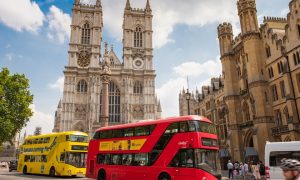immigrantsThe UK is a dream for many people, but the costs involved are often daunting. From visa applications to daily life, every expense requires precise planning. This article will provide you with a detailed analysisUK immigrationAll the major expenses you may encounter during the process will help you clearly understand the costs and make financial preparations for your immigration plan.
1. Visa application fees
The visa fee isImmigration to the UKThe main expense is the cost of applying for a visa, which varies depending on the type of visa.
1. Student Visa
- visa fee: Approximately £363 (2024 standard), applicable to overseas applications.
- IHS: £624 per year, undergraduate or master's courses generally pay 2 years, a total of £1,248.
- total: From approximately £1,611 (tuition fees not included).
2. Skilled Worker Visa
- visa fee: Depending on the validity period, the cost of a 5-year visa ranges from £715 to £1,235.
- Medical surcharge: £624 per year, totalling £3,120 over 5 years.
- Guarantee fee (paid by the employer): Some employers may pass on the costs to employees, which could range from £1,000 to £5,000.
- total: From around £4,000.
3. investment immigrationVisa (Investor Visa)
- visa fee: The application fee is £1,623.
- Minimum investment amount: Starting from GBP 2 million, it must be deposited in a financial institution approved by the UK.
- total: Investment amount + additional fees.
4. Permanent Residence (ILR)
- filing fee: About £2,404 (2024 standard).
- additional surcharge: Includes the Life in the UK test fee (£50) and the English language test fee (approximately £150).
- total: From around £2,600.
2. Other expenses in the early stage of immigration
1. Language test fees
- IELTS: Approximately £200 to meet the language proficiency requirement.
- Exam review materials and courses: Additional expenses may range from £100 to £500 depending on requirements.
2. Certification and translation fees
- Academic certification, document translation and notarization: usually between £100 and £300.
3. Visa service fee
- Cost of using an immigration lawyer or visa agency: generally between £1,000 and £5,000.
3. Analysis of living costs
1. Living expenses
- Rental costs::
- London: Monthly rent between £1,200 and £2,500 (single apartment).
- Non-London areas: monthly rent between £600 and £1,200.
- deposit: Usually 1 to 3 months rent, around £1,000 to £5,000.
2. Living expenses
- Water, electricity and gas charges: £150 to £250 per month.
- Mobile phone and internet charges: £50 to £100 per month.
- everyday shopping: Food expenses for one person per month are around £200 to £400.
3. Transportation costs
- mass transit::
- London Underground/Bus Card (Oyster Card): around £150 per month.
- Outside London: around £50 to £100 per month.
- private car: Including fuel, insurance and maintenance, it is about £1,500 to £3,000 per year.
4. Children’s education expenses (if any)
- State schools are free, but private school fees are around £10,000 to £20,000 per year.
5. Medical expenses
- The NHS covers basic medical needs and the medical surcharge is included in the visa fee. Some special services may incur additional charges.
Four,UK immigrationCost Overview
1. Estimated first year expenses
Take a work visa as an example:

- visa fee: Approximately £4,000.
- Language exams and certification: Approximately £500.
- Cost of living (London area): Approximately £25,000-30,000.
- total: £29,500 to £34,500.
2. Long-term costs
- Annual living expenses vary depending on personal and family circumstances, and total expenses may range from £20,000 to £50,000.
5. How to optimize the immigration budget
1. Plan your visa route in advance
- Choose the most appropriate visa for your individual situation and avoid unnecessary costs.
- If possible, try to switch to a longer-term visa (such as from a Graduate Visa to a Skilled Worker Visa).
2. Selected living areas
- The cost of living in non-London areas is significantly lower, with savings of around 30% on housing and daily expenses.
3. Make good use of UK welfare
- If they meet the requirements, permanent residents can enjoy more social welfare benefits, such as child subsidies, unemployment benefits, etc.
4. Choose the right educational resources
- Sending children to public schools will significantly reduce educational expenses.
5. Reasonable financial management and investment
- The interest rates on bank deposits in the UK are relatively low, so you may consider real estate investment or other long-term income projects.
VI. Conclusion
UK immigrationAlthough it requires a certain amount of capital investment, immigration is not difficult to achieve through proper planning and budget management. From visa application fees to living expenses, understanding the details of each expense is the key to successful immigration. Hopefully, this article has provided you with a clear overview of the costs and helped you prepare for your immigration.Immigration to the UKDream about being financially prepared!







